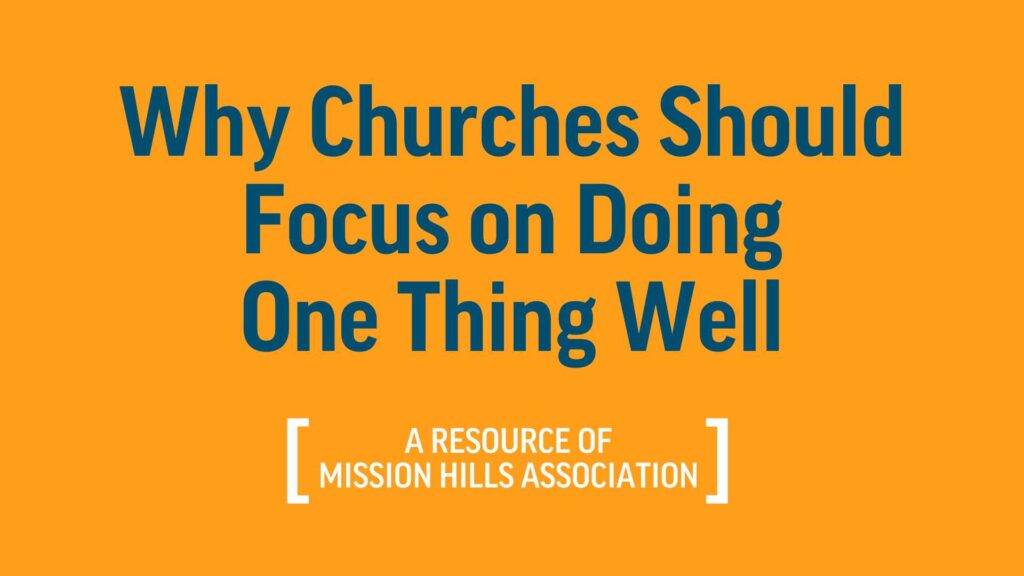
In the bustling life of a high school student, where every day can bring a new challenge, the importance of having a supportive spiritual community can’t be overstressed. For pastors and volunteers to high school students, the quest to build a successful high school youth ministry often hinges on a key principle: being simple yet strategic. This approach facilitates discipleship and ensures it’s replicable, allowing for deeper engagement and more profound spiritual growth.
Mission Hills High School Ministry Director Stephen Boyer says, “Once you have a foundation, you can do more complicated things.” So, before we get into the “cheat codes” that create powerful high school ministry, it helps to understand some of the challenges your high schoolers are facing.
Going Deeper: Understanding What High School Students Experience + How to Help
High school students face complex challenges daily, from identity formation and self-esteem issues to peer pressure and managing academic stress. As they approach adulthood, these young individuals often wrestle with profound questions about their place in the world and their faith. Boyer recommends, “Have a level of humility as you engage in pastoral care, and don’t hesitate to say, “I may not be the best person to handle this.”
Their Biggest Challenges and Your Strategic Solutions
Identity Formation + Self-Esteem Issues
At an age where questions of identity become front and center, high school students need a ministry that offers both understanding and guidance. Your role? To create a space where they can explore these issues safely and find answers that resonate with their spiritual journey.
Peer pressure, Social Dynamics, and Advocating for Themselves
The high school social scene can be daunting, with peer pressure pushing students towards conformity. A strategic youth ministry provides tools and teachings that empower students to navigate these dynamics confidently grounded in their faith.
Academic Stress + Future Planning
Students often feel overwhelmed by the pressure to excel academically and make pivotal decisions about their future. A simple yet profound ministry can help them see these challenges through the lens of their faith, providing peace and perspective.
It helps to occasionally remind yourself as you work toward creating an effective ministry system that the true measure of a successful youth ministry is how effectively it nurtures and prepares these high school students for a lifelong journey of faith while seamlessly transitioning them into active members of the larger church community.
Five “Cheat Codes” for Creating Powerfully Simple Ministry Programs for High School Students
1. Establish a Focused Yet Flexible Foundation
When developing ministry systems for high schoolers, it’s important to balance simplicity and strategy. Simplicity allows discipleship to be easily replicated and understood, while strategy ensures intentionality and effectiveness. Start with a solid foundation before adding complexity.
The benefits of simplicity:
- Empowers parents and volunteers to engage more easily
- Provides opportunities for others to get involved
- Gives a clear framework that everyone can understand
2. Embrace a Generalist Approach with Humility
Recognize the breadth of challenges students face and approach your pastoral care humbly. Admit when a situation might require specialized attention, and be prepared to guide students to the right resources or help.
3. Make Use of What’s Already Out There
Whether it’s leveraging materials from organizations like Mission Hills or tapping into the wealth of resources in your community, like trusted counselors who work with high schoolers, don’t reinvent the wheel. There’s a plethora of support out there—use it.
Create a list of community resources, such as trusted Christian counselors, mentors, or partner organizations that provide specialized support or services for high schoolers. Boyer says, “At the end of the day, we’re not the ones who are the most equipped—give students tools.”
At Mission Hills, we offer many resources, events, and programs specifically for high schoolers (e.g., High School Ministry, Winter Camp, Summer Studies).
- Mission Hills Association free resources for your congregation
- Mission Hills Church High School Ministry Information
- Mission Hills Church Parent Resources
4. Go Beyond the Pulpit: Diversify Your Communication Channels
Today’s high schoolers are digital natives. Meeting them where they are means using a variety of communication methods, from social media to podcasts, to share your messages and resources.
5. Empower Parents as Partners in Faith
Parents play a crucial role in their children’s spiritual journey. By equipping parents with the resources and support they need, you extend the reach of your ministry directly into the home.
Provide resources, support, and opportunities for parents to engage with the ministry systems, such as:
- Parenting workshops or seminars
- Regular communication and updates
- Volunteer opportunities within the high school ministry
High school ministry isn’t easy, but it doesn’t have to be complicated. By embracing simplicity and strategic thinking, you can create a program that meets students where they are and guides them toward a deeper understanding of their faith and themselves.
Remember, at the core of your efforts is the desire to empower these young individuals with the tools they need to navigate life’s complexities with faith as their compass. As you build out your ministry and share your resources in various formats, you’ll find that the impact of your work extends far beyond the church walls into the hearts and minds of the students you serve.
This article was written in collaboration with Stephen Boyer, the High School Pastor at Mission Hills. If you want to continue the conversation, you can contact him directly at sboyer@missionhills.org.




